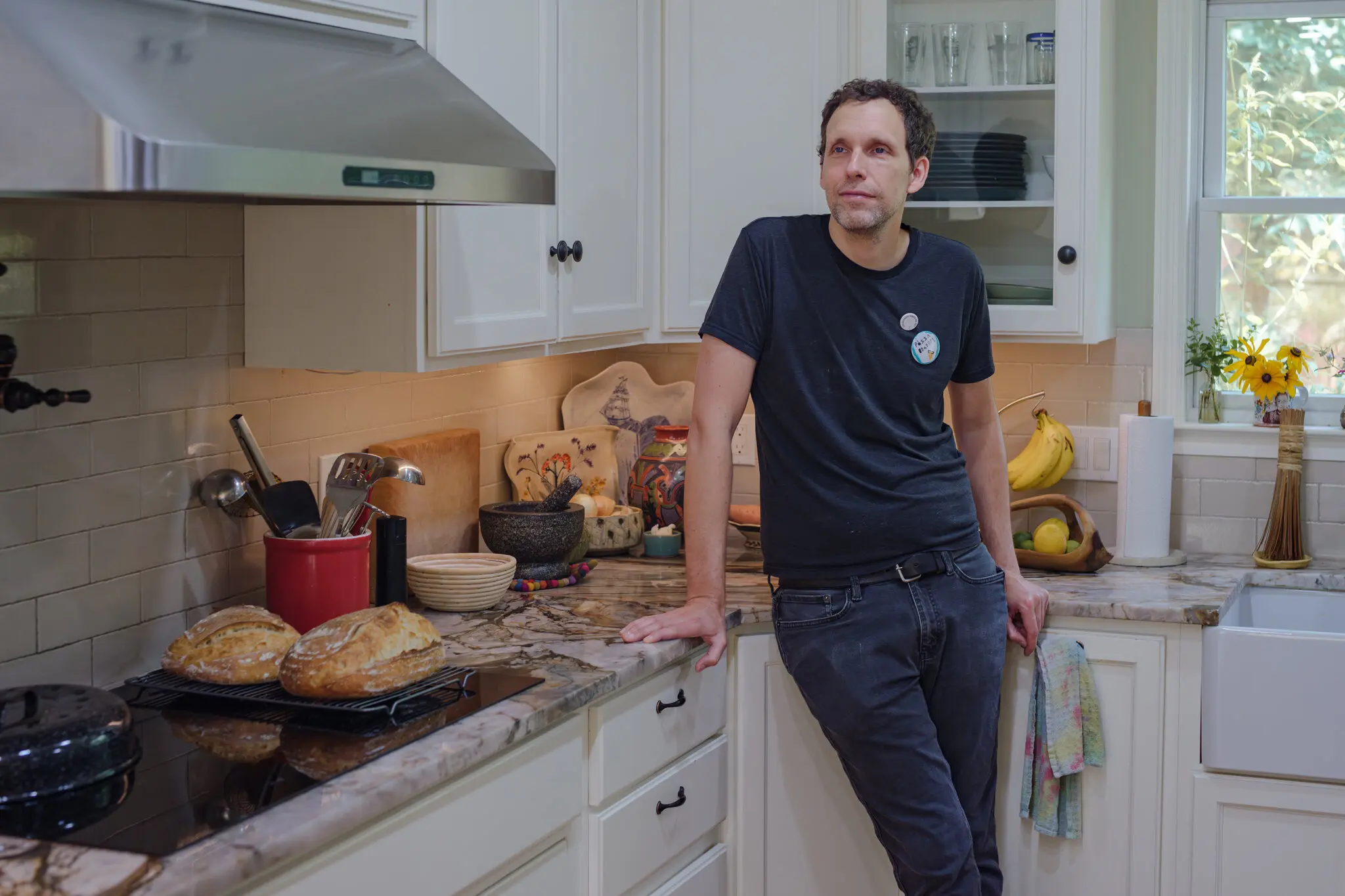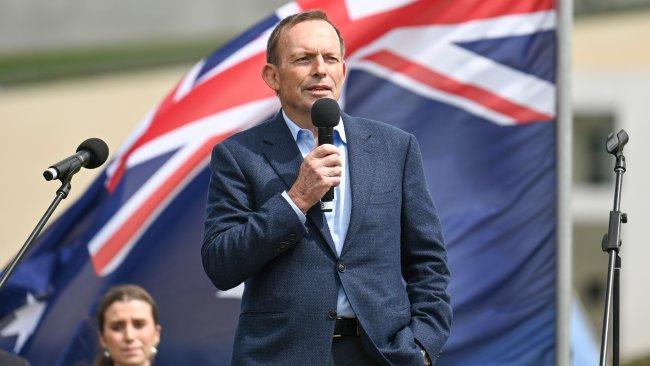
Peter Goodman: His Start-Up May Not Survive Trump’s Tariffs
A sourdough baker turned entrepreneur in North Carolina has delayed his new product as he contemplates the prospect that higher costs will doom his company.…
Thought Leader: Peter Goodman
The following is a transcript of an interview with former FDA Commissioner Dr. Scott Gottlieb that aired Sunday, October 3, 2021, on “Face the Nation.”
MARGARET BRENNAN: We go now to former FDA Commissioner Dr. Scott Gottlieb, who also sits on the board of Pfizer. He is the author of Uncontrolled Spread: Why COVID-19 Crushed US and How We Can Defeat the Next Pandemic. Dr. Gottlieb, always good to talk to you. I want to pick up with you where–
DR. SCOTT GOTTLIEB: Thanks.
MARGARET BRENNAN: –where I left off with Gov. Justice, which was on this question of vaccine mandates for children. He didn’t like the comparison of the COVID-19 vaccine to all the other vaccines he mandates as a governor. Measles, mumps, rubella, tetanus, polio. Should it be considered different?
DR. GOTTLIEB: Well, I think it’s inevitable that the COVID vaccine is going to be incorporated into the childhood immunization schedule. CDC ultimately has to take that up. My guess is they’re not going to take that up until you have fully approved vaccines for children, until you have more than one vaccine in the market available to kids. So that might be more of a fall 2021, 2022 type of event. But you’re going to see other states and local districts moving forward with their own mandates. And I think the right locus for decision making around these mandates is at the local level. So, you’re going to see other states like California taking this up.
MARGARET BRENNAN: Right, which they did. But Gov. Justice- what you’re talking about is a practical matter of timing. He said it’s about personal freedom and parents making decisions for themselves, and it’s a theme that we continue to hear, particularly from Republicans. Sen. Ted Cruz this week said he stands with NBA players refusing to be vaccinated, for example. The Republican governor of Texas, Florida, they’re saying also, it’s a matter of free choice. You’ve been concerned about politicization of vaccines. Aren’t we already there?
DR. GOTTLIEB: We are there. Look, these are not just individual choices, these are collective decisions and what we’ve always- we’ve always looked at vaccination as a collective decision. That’s why we have a childhood immunization schedule because your behavior with respect to your choice around vaccination affects your community. That’s why I think the- the right locus of decision making around these mandates is as local a level as possible. So to the extent that governors and mayors can do this, I think that’s going to depoliticize these kinds of decisions. It’s when the federal government steps in if this becomes more of a political issue. I do worry about the consequences of the moment we’re in. The fact that now vaccination is something that’s dividing us culturally and politically, because I think that’s going to have broader implications than just around COVID. I worry that going forward, we’re going to see vaccination rates decline as this becomes more of a political football. And we see people literally governors running against vaccine and vaccine mandates in the next presidential cycle. That’s going to be deleterious to the public health generally, if that’s what comes out of this episode, we’re in.
MARGARET BRENNAN: And that was your, if I understand it, your chief criticism of President Biden’s decision a month ago to issue a mandate. One he hasn’t filed for yet, but at least announced.
DR. GOTTLIEB: Yeah, I would be trying to use big carrots rather than sticks when it comes to private businesses. I think that that’s where they might have crossed the line, that really created more acrimony and gave people on the political right, frankly, something to now run against. Certainly, the federal government is well within its right with the mandates on federal workers. I think health care workers should be mandated to get vaccinated. We require them to get vaccinated for chickenpox and hepatitis B and influenza. I think a mandate inside the Medicare program makes a lot of sense. Using the Medicare program to try to incentivize Medicare providers to get their populations vaccinated at higher levels. That’s going to protect a lot of senior citizens. So, there’s certainly tools that the federal government has at its disposal. But I think when you’re getting down to private businesses in states, you want to see those decisions made by the businesses, by- at the local level. And I think the federal government could step in with incentives to try to drive that behavior.
MARGARET BRENNAN: We asked Dr. Fauci about this pill from Merck that was announced as being successful 50% of the time in reducing- or excuse me, reducing by half the chance of hospitalization. 1.7 million doses, Are you concerned that’s not enough?
DR. GOTTLIEB: Well, it’s not enough. 1.7 million doses, by virtue of the indication that this is probably going to be approved for, would cover us with one month of the Delta wave. I mean, it would have covered one month in the Delta wave in the South. So, I think there could have been a little more forethought to trying to get more manufacturing in place and procuring more doses. Just to give you a basis of comparison, the Strategic National Stockpile has anywhere between 50 million and 80 million courses of therapy for a feared pandemic flu. So, you know, contracting for 1.7 million doses wasn’t enough to cover any appreciable portion of this pandemic. This drug looks very promising. This is the most profound treatment effect based on the top line data that I’ve seen from an orally available drug in the treatment of any respiratory pathogen. So, you know, hopefully Merck is going to be in a position to file the data with FDA this week. They can make an emergency use authorization request as early as this week. And depending on how long the FDA takes, and the FDA has seen a lot of this data already, you could see this drug available very soon.
MARGARET BRENNAN: Is it going to have to be rationed- rationed though?
DR. GOTTLIEB: Depending on what happens with the COVID spread, it’s going to have to be rationed, yeah. I would expect to see a scheme similar to what we have with the antibody drugs, but this is going to be allocated to states.
MARGARET BRENNAN: All right. Dr. Gottlieb, thank you for your analysis, as always. We’re going to talk police reform up next with Sen. Cory Booker. Stay with us.
Peter Goodman: His Start-Up May Not Survive Trump’s Tariffs
A sourdough baker turned entrepreneur in North Carolina has delayed his new product as he contemplates the prospect that higher costs will doom his company.…
Thought Leader: Peter Goodman
Tony Abbott calls for stronger action to end ‘pro-Hamas’ protests
Former prime minister Tony Abbott has called for stronger action on antisemitism in the wake of further attacks against the Jewish community, including tougher policing…
Thought Leader: Tony Abbott
Leana Wen: The Doctor Will See You Now. So Will the Lawyer.
Legal aid organizations are helping doctors address social barriers to patients’ health. During my residency training, when I worked shifts in the pediatric emergency department,…
Thought Leader: Leana Wen

